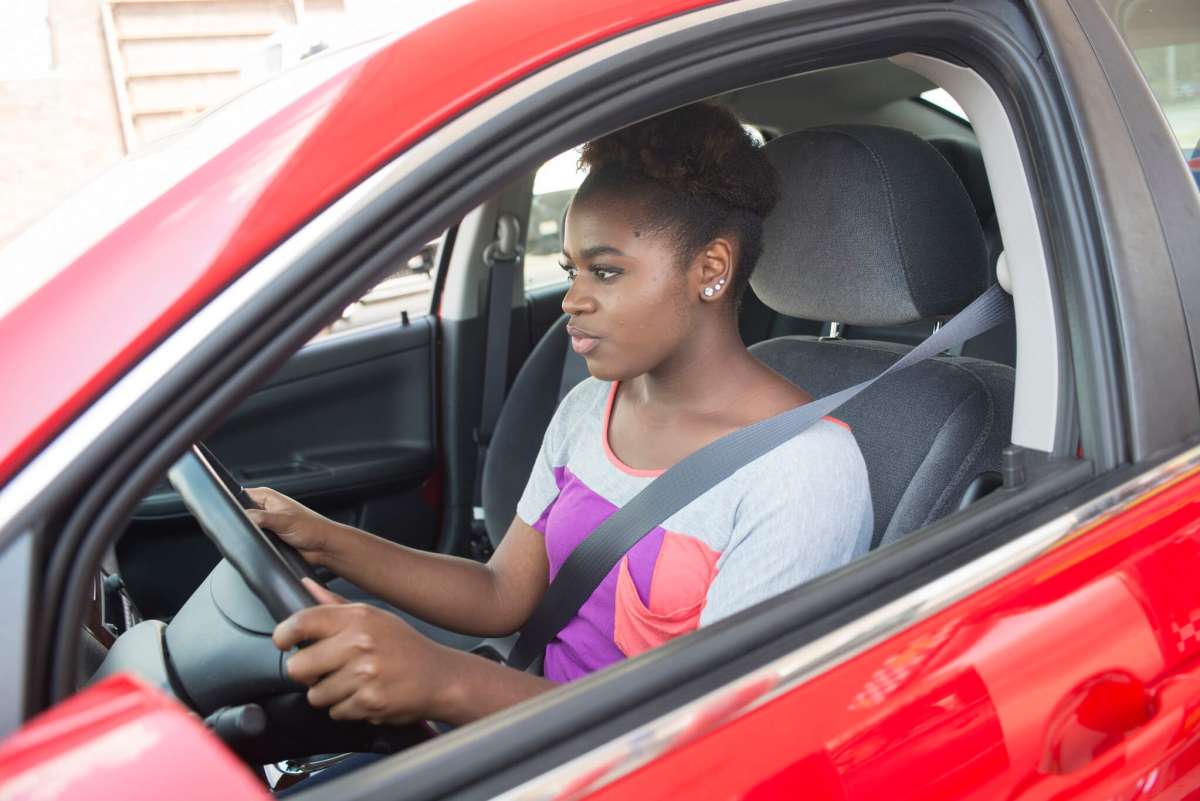Discipline for Teens: 5 Teachable Moments for Tweens and Teens

Discipline for teens can sound daunting. There are no longer stints in the time-out chair when your child is now probably taller than you are! Battles over eating mashed peas have morphed into more adult issues. So how do you handle these topics while helping your kid learn a valuable lesson and keep communication lines open all at once?
Here's the lowdown.

Photo Credit: State Farm
1. Texting while driving (ages 16+): We all know that texting while driving is illegal, but adults are just as guilty of this behavior. You see it every day and so do your teens. If you find out that your teen has been texting while driving, instead of losing your mind and coming down hard, use it as an important opportunity to help them learn. Taking their phone or keys away doesn't teach what you want: a safe (and alive) responsible driver. The website Distraction.gov has pages about distracted driving (and the dire consequences) geared towards teens and parents with short but effective PSA's and videos such as "Don't Let an Emoji Wreck Your Life." Being angry and punishing may defeat your goal of stopping their behavior. You could save their life by having a frank conversation instead of grounding them.
2. Drugs (ages 12+): When we were kids, street drugs were the concern, but now, prescription pain meds in your bathroom pose just as much risk for abuse. From opioids to marijuana to inhalants, there are many avenues to abuse so what if you found out your child snuck some of your meds? Flying off the handle rarely, if ever, accomplishes anything but adding more fuel to an already stoked fire of emotions. Getting to the root cause of why your child did this is important. Of course you are upset and concerned, as this brings up a host of issues, including trust. Get them talking, and listen to what they have to say. Find out if they are feeling depressed or pressured by peers. According to Teen Rehab Center, "Studies continually show that teens are less likely to abuse substances if their families have open, honest discussions about the matter." This is serious so being there for them is key.
3. Dating and sex (ages 11+): Yes, kids as young as middle school start chatting about dating, and it's not uncommon for middle school-aged kids to be dating someone. Now is the time to have the conversation with your tweens about what dating means. If you find that your child has been fooling around sexually, sit them down and have a calm heart-to-heart about boundaries, respecting others, intimacy, and the consequences. Be firm and clear. The U.S. Department of Health and Human Services has some great advice to talk with your tween/teen about dating and sex. They suggest that you talk often, practice listening, and ask questions. Kids want and need your guidance, and getting upset doesn't help in this situation.

Photo Credit: Seth Dickens
4. Alcohol (ages 11+): Opening the dialogue about alcohol and its dangers should start in the late elementary school years. But what if you just found out that your teen was at a party and took a few sips of beer? Most parents might want to lock their kid in their room and throw away the key indefinitely, but again, this just ratchets up the anger and disconnect between you and your teen. Tell them that although you are upset, you understand alcohol can seem cool or intriguing. The organization Substance Abuse and Mental Health Services Administration (SAMHSA) has a lot of resources about talking effectively to your kids about alcohol. They recommend more frequent talks builds an open and trusting relationship better than one big talk. SAMHSA says parents should not play "the blame game." If your teen is caught drinking, there should be consequences, but dialogue is also crucial.
5. Social media (ages 10+): Social media sites typically have a minimum age of 13 before kids can have an account, but kids younger than that are using them anyway. Kids Health says that social media "can be a hub for things like cyberbullying and questionable activities. Without meaning to, kids can easily share more online than they should. Actions like this can make kids easy targets for online predators and others who might want to cause them harm." Kids aren't mature enough to understand how serious social media use really is. If you find out that your child has been misusing social media, whether it's sharing photos or posts they shouldn't, you need to be vigilant as a parent but mindful of their inexperience. Instead of grounding them, talk with them about the seriousness of their actions and how much you care about their wellbeing and safety. What they think might be intended for one person can be shared with thousands. The American Academy of Pediatrics suggests monitoring headlines and the news for stories about "sexting" or inappropriate social media use that illustrate the very real consequences for both senders and receivers of these images.
Featured photo credit: chiesADIbeinasco

